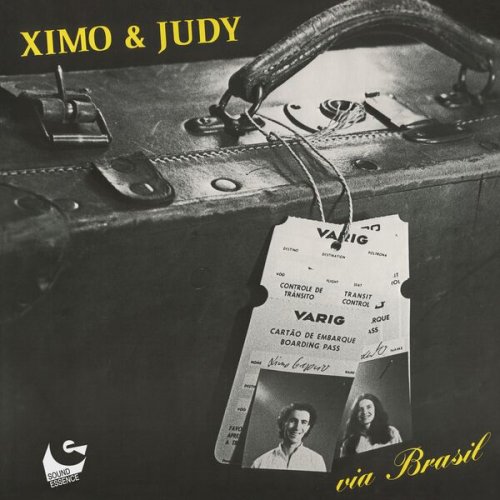La Tanya Hall - If Not Now, When... (2025) [Hi-Res]
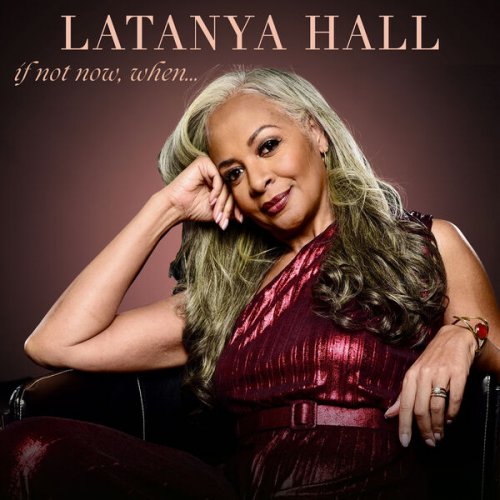
Artist: La Tanya Hall, Gary Bartz, Eddie Henderson, Cyrus Chestnut, Gregoire Maret, Gerald Cannon, Mark McLean, Marvin Sewell
Title: If Not Now, When...
Year Of Release: 2025
Label: Blue Canoe Records
Genre: Jazz, Vocal Jazz
Quality: FLAC (tracks) [48kHz/24bit]
Total Time: 37:12
Total Size: 438 / 223 MB
WebSite: Album Preview
Tracklist:Title: If Not Now, When...
Year Of Release: 2025
Label: Blue Canoe Records
Genre: Jazz, Vocal Jazz
Quality: FLAC (tracks) [48kHz/24bit]
Total Time: 37:12
Total Size: 438 / 223 MB
WebSite: Album Preview
1. La Tanya Hall – Pretty Eyes (05:07)
2. La Tanya Hall – Let's Burn Down The Cornfields (04:10)
3. La Tanya Hall – A Turtle's Dream (07:08)
4. La Tanya Hall – Long As You're Living (04:16)
5. La Tanya Hall – Tender As A Rose (04:59)
6. La Tanya Hall – Lullaby Of The Leaves (04:12)
7. La Tanya Hall – Azure (03:28)
8. La Tanya Hall – Day Dreaming (03:49)
La Tanya Hall — a vocalist, educator, and longtime Steely Dan touring member known for her story-driven approach and stylistic versatility — is honored to announce the upcoming release of If Not Now, When…, her most personal and intentional project to date. Born from a period of vocal silence and artistic reflection, the album offers a thoughtfully curated collection of lesser-known songs chosen for their lyrical power and emotional weight. If Not Now, When… arrives October 10 via Blue Canoe Records.
Produced by Michael Leonhart, the project features an all-star band including saxophonist Gary Bartz, trumpeter Eddie Henderson, pianist Cyrus Chestnut, harmonicist Gregoire Maret, bassist Gerald Cannon, drummer Mark McLean, and guitarist Marvin Sewell. Across its eight tracks, Hall explores material that is often overlooked — songs chosen for their storytelling and emotional resonance. The result is a deeply personal and musically openhearted album shaped by Hall’s renewed artistic purpose following a prolonged loss of her voice during the early months of the COVID-19 pandemic.
A Colorado native, Hall began performing at age 13 with her father, a jazz pianist. Her solo debut, It’s About Time (Bridge Records, 2008), earned praise from JazzTimes for “the keen interpretative smarts of Maxine Sullivan underscored by the elegant sophistication of Nancy Wilson,” calling her “marvelously dexterous.” Her 2019 follow-up, Say Yes (Blue Canoe), was hailed by ClevelandClassical.com for its “full, alluring color-palette, impeccable diction, and an expansive vocal range,” while JazzTimes highlighted the album’s “alternating glimpses of Hall’s various musical personas.”
In addition to her solo work, Hall has built a multifaceted career as a touring and session vocalist with Diana Ross, Bobby McFerrin, Seal, Harry Belafonte, Rob Thomas and Steely Dan; and as a jazz educator, building the vocal jazz program at Oberlin Conservatory, where she teaches today.
Hall contracted COVID-19 in the early days of the pandemic and spent over five months recovering—much of it unable to speak, let alone sing. “I lost my voice completely,” she recalls. “It was terrifying. Singing has always been part of how I connect with the world, and suddenly that was gone.” As her voice slowly returned, self-doubt began to creep in. “I started to question everything — was I ready to record again? Would it be good enough? Would people want to hear it?” It was her husband, pianist Andy Milne, who broke through the hesitation: If not now, when? “It was kind of a lightning bolt,” Hall says. “I’ve been making music for a long time, and I realized I still have things to say.”
She immersed herself in seldom-recorded repertoire, seeking out songs with lyrical substance and emotional weight. “I’ve always been drawn to the rare gem,” she says. “Songs that haven’t been overly done — that tell a story.” From there, she assembled not just a band of master musicians, but a circle of collaborators she trusted on a deeper level. “I wanted to be surrounded by people who would allow me to be vulnerable,” she explains. “People who play with heart and create space for a vocalist.”
At Teaneck Sound in Teaneck, New Jersey, this trusted circle of musicians brought Hall’s vision to life with warmth and precision. The first track, Horace Silver’s “Pretty Eyes,” sets the tone—a lilting, harmonically rich ballad featuring saxophonist Gary Bartz and trumpeter Eddie Henderson. Both longtime collaborators and fellow faculty members at Oberlin Conservatory, the two bring a fluid, intuitive rapport to the tune. “They already have a musical history and bond that comes alive when they play together,” Hall says. “I was nervous to ask them — but neither one of them hesitated to say yes.”
Hall was inspired to put her own stamp on “Cornfield” (Randy Newman’s “Let’s Burn Down the Cornfield,” originally from his 1970 album 12 Songs) after hearing Lou Rawls’ seminal interpretation. Staying true to her mission of championing overlooked songs, Hall and her band deliver a stripped-down arrangement that emphasizes the track’s haunting quality and nuanced storytelling.
The vocalist then turns her attention to another underappreciated gem, Abbey Lincoln’s seldom-covered “A Turtle’s Dream.” Drawn to Lincoln’s insightful lyricism and unique compositional voice, Hall presents the tune with sensitivity and grace. Pianist Cyrus Chestnut sets the tone with what Hall describes as “one of the most beautiful solo openings,” providing a gentle, reflective foundation for her vocal storytelling.
Hall emphasizes the modern day relevance of Oscar Brown Jr.’s “Long As You’re Living,” a joyful meditation on gratitude and the preciousness of life. In a nod to the broader cultural moment, she highlights the song’s central message: “No matter what side of the fence you fall on, we have to lead with love.”
Returning to Abbey Lincoln’s rich songbook, Hall puts her stamp on “Tender as a Rose,” another rarely covered tune. Guitarist Marvin Sewell’s intuitive playing particularly shines here—Hall notes their immediate, deep musical connection, describing the recorded performance as their very first take. Reflecting on their nearly 30-year friendship, Hall calls Sewell “a wonder” and highlights the unspoken understanding that permeates their collaboration.
On If Not Now, When…, Hall makes a deliberate effort to spotlight female composers, and her selection of Bernice Petkere’s “Lullabye of the Leaves” speaks directly to that intent. Acknowledging that Petkere’s contributions have often been overlooked, Hall uses this performance as an opportunity to honor her legacy and artistry.
The album concludes with two songs from different sides of the musical realm. The first, “Azure,” is from Duke Ellington’s expansive repertoire, co-written by Ellington and Irving Mills. Hall chose the rarely performed composition specifically to highlight its sophisticated melodic contours and emotional subtlety. The second, “Day Dreaming,” is an Aretha Franklin classic that has been stripped down to an intimate acoustic conversation between Hall, guitarist Sewell and Maret on harmonica. This bare-bones approach lets each phrase land with quiet assurance, ending the album on a note of spacious resolve.
“I just want to keep spreading light and music,” Hall concludes, her voice and confidence restored. “That’s my main goal in this existence.”
Produced by Michael Leonhart, the project features an all-star band including saxophonist Gary Bartz, trumpeter Eddie Henderson, pianist Cyrus Chestnut, harmonicist Gregoire Maret, bassist Gerald Cannon, drummer Mark McLean, and guitarist Marvin Sewell. Across its eight tracks, Hall explores material that is often overlooked — songs chosen for their storytelling and emotional resonance. The result is a deeply personal and musically openhearted album shaped by Hall’s renewed artistic purpose following a prolonged loss of her voice during the early months of the COVID-19 pandemic.
A Colorado native, Hall began performing at age 13 with her father, a jazz pianist. Her solo debut, It’s About Time (Bridge Records, 2008), earned praise from JazzTimes for “the keen interpretative smarts of Maxine Sullivan underscored by the elegant sophistication of Nancy Wilson,” calling her “marvelously dexterous.” Her 2019 follow-up, Say Yes (Blue Canoe), was hailed by ClevelandClassical.com for its “full, alluring color-palette, impeccable diction, and an expansive vocal range,” while JazzTimes highlighted the album’s “alternating glimpses of Hall’s various musical personas.”
In addition to her solo work, Hall has built a multifaceted career as a touring and session vocalist with Diana Ross, Bobby McFerrin, Seal, Harry Belafonte, Rob Thomas and Steely Dan; and as a jazz educator, building the vocal jazz program at Oberlin Conservatory, where she teaches today.
Hall contracted COVID-19 in the early days of the pandemic and spent over five months recovering—much of it unable to speak, let alone sing. “I lost my voice completely,” she recalls. “It was terrifying. Singing has always been part of how I connect with the world, and suddenly that was gone.” As her voice slowly returned, self-doubt began to creep in. “I started to question everything — was I ready to record again? Would it be good enough? Would people want to hear it?” It was her husband, pianist Andy Milne, who broke through the hesitation: If not now, when? “It was kind of a lightning bolt,” Hall says. “I’ve been making music for a long time, and I realized I still have things to say.”
She immersed herself in seldom-recorded repertoire, seeking out songs with lyrical substance and emotional weight. “I’ve always been drawn to the rare gem,” she says. “Songs that haven’t been overly done — that tell a story.” From there, she assembled not just a band of master musicians, but a circle of collaborators she trusted on a deeper level. “I wanted to be surrounded by people who would allow me to be vulnerable,” she explains. “People who play with heart and create space for a vocalist.”
At Teaneck Sound in Teaneck, New Jersey, this trusted circle of musicians brought Hall’s vision to life with warmth and precision. The first track, Horace Silver’s “Pretty Eyes,” sets the tone—a lilting, harmonically rich ballad featuring saxophonist Gary Bartz and trumpeter Eddie Henderson. Both longtime collaborators and fellow faculty members at Oberlin Conservatory, the two bring a fluid, intuitive rapport to the tune. “They already have a musical history and bond that comes alive when they play together,” Hall says. “I was nervous to ask them — but neither one of them hesitated to say yes.”
Hall was inspired to put her own stamp on “Cornfield” (Randy Newman’s “Let’s Burn Down the Cornfield,” originally from his 1970 album 12 Songs) after hearing Lou Rawls’ seminal interpretation. Staying true to her mission of championing overlooked songs, Hall and her band deliver a stripped-down arrangement that emphasizes the track’s haunting quality and nuanced storytelling.
The vocalist then turns her attention to another underappreciated gem, Abbey Lincoln’s seldom-covered “A Turtle’s Dream.” Drawn to Lincoln’s insightful lyricism and unique compositional voice, Hall presents the tune with sensitivity and grace. Pianist Cyrus Chestnut sets the tone with what Hall describes as “one of the most beautiful solo openings,” providing a gentle, reflective foundation for her vocal storytelling.
Hall emphasizes the modern day relevance of Oscar Brown Jr.’s “Long As You’re Living,” a joyful meditation on gratitude and the preciousness of life. In a nod to the broader cultural moment, she highlights the song’s central message: “No matter what side of the fence you fall on, we have to lead with love.”
Returning to Abbey Lincoln’s rich songbook, Hall puts her stamp on “Tender as a Rose,” another rarely covered tune. Guitarist Marvin Sewell’s intuitive playing particularly shines here—Hall notes their immediate, deep musical connection, describing the recorded performance as their very first take. Reflecting on their nearly 30-year friendship, Hall calls Sewell “a wonder” and highlights the unspoken understanding that permeates their collaboration.
On If Not Now, When…, Hall makes a deliberate effort to spotlight female composers, and her selection of Bernice Petkere’s “Lullabye of the Leaves” speaks directly to that intent. Acknowledging that Petkere’s contributions have often been overlooked, Hall uses this performance as an opportunity to honor her legacy and artistry.
The album concludes with two songs from different sides of the musical realm. The first, “Azure,” is from Duke Ellington’s expansive repertoire, co-written by Ellington and Irving Mills. Hall chose the rarely performed composition specifically to highlight its sophisticated melodic contours and emotional subtlety. The second, “Day Dreaming,” is an Aretha Franklin classic that has been stripped down to an intimate acoustic conversation between Hall, guitarist Sewell and Maret on harmonica. This bare-bones approach lets each phrase land with quiet assurance, ending the album on a note of spacious resolve.
“I just want to keep spreading light and music,” Hall concludes, her voice and confidence restored. “That’s my main goal in this existence.”
![Yao Si Ting - Walking In The Air (2006) [2015] Yao Si Ting - Walking In The Air (2006) [2015]](https://www.dibpic.com/uploads/posts/2025-10/1760126686_yao-si-ting-w-892-1.jpg)
![Nicole Zuraitis, Dan Pugach & Tom Scott - Live at Vic's Las Vegas (Deluxe Edition) (2025) [Hi-Res] Nicole Zuraitis, Dan Pugach & Tom Scott - Live at Vic's Las Vegas (Deluxe Edition) (2025) [Hi-Res]](https://www.dibpic.com/uploads/posts/2025-10/1760063179_sdadpyfp3kepb_600.jpg)
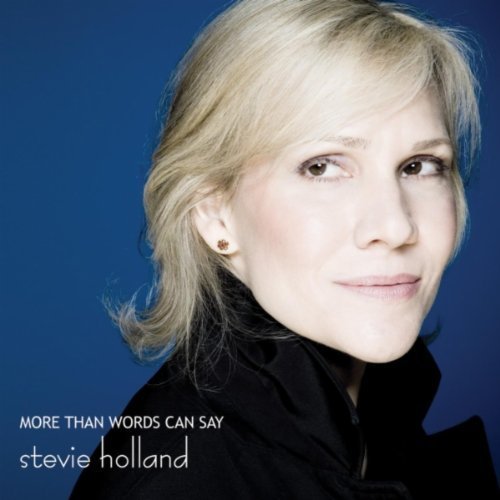
![Anmol Mohara - Across The Sea (Original Soundtrack) (2025) [Hi-Res] Anmol Mohara - Across The Sea (Original Soundtrack) (2025) [Hi-Res]](https://img.israbox.com/img/2025-10/12/re8e94ivdepqw1j9auw4rvtrs.jpg)
![Sadao Watanabe - My Dear Life (1977) [Hi-Res] Sadao Watanabe - My Dear Life (1977) [Hi-Res]](https://www.dibpic.com/uploads/posts/2025-10/1760245346_cover.jpg)
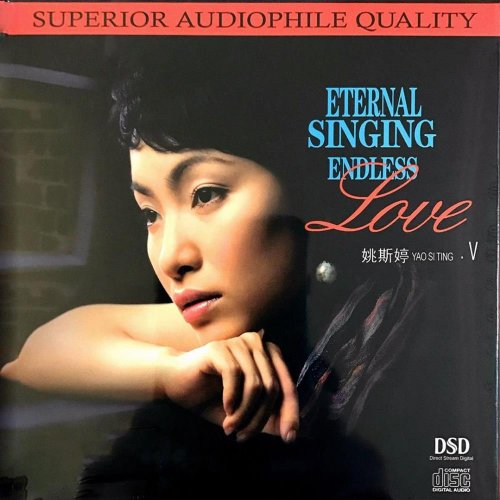
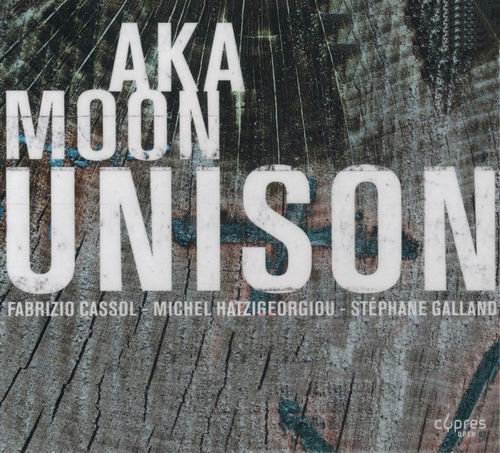
![Peter Scharli - Lavadeiras (2025) [Hi-Res] Peter Scharli - Lavadeiras (2025) [Hi-Res]](https://img.israbox.com/img/2025-10/13/nd0ucm9hzayo9y5qbdszbyrd7.jpg)
